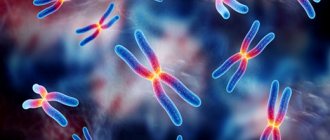What is schizophrenia?
Schizophrenia is a severe mental disorder (illness) that greatly affects a person's behavior, compromises lifestyle, debilitates daily activities, and leaves the patient unaware of what is real.
Initially, the disease presents with mild personality changes, mild paranoia and increased moodiness. It then develops into decreased emotional depression, noticeable personality changes, disorganization, "incoherent" speech, sudden mood swings, usually without any factors, and auditory hallucinations.
Tactile hallucinations are rare but may occur periodically. The patient often believes with a strong, almost to the point of stubborn, faith that what he perceives is real. The patient may become overly hostile, aggressive, withdrawn, or closed, depending on his mental status.
Epidemiology
Approximately 1% of the population of Russia, as well as throughout the world, suffer from this disease throughout their lives.
Age.
The disease usually begins between late adolescence and middle years of life (17-30 years). Schizophrenia is extremely rare in children under 15 years of age.
Floor.
Schizophrenia is diagnosed more often in men than in women (about 1.4:1). In addition, the onset of the disease occurs later in women than in men, possibly due to the antidopaminergic effect of estrogen in women.
Causes of male schizophrenia
Schizophrenia occurs both due to pathological processes occurring in the brain (gliosis, cancer, etc.) and as a result of childhood trauma, being victims of bullying, substance abuse or severe emotional trauma.
There are several main reasons:
- hereditary predisposition. A person receives an inherited set of chromosomes from two parents. Chromosomes store genetic information, so if someone in the family has this disease, then the likelihood of developing schizophrenia increases significantly. It can be transmitted not only from parents, but also from distant relatives and great-grandmothers;
- tendency to a pessimistic view of the world, chronic depression;
- environmental influence. Deviations in a man’s behavior can be noticed with frequent overwork, chronic insomnia, and abuse of alcohol and drugs;
- upbringing. Lack of love and care from the mother or support from the father can lead to the development of schizophrenia;
- age crises. Most often, the disease manifests itself in adolescence during a hormonal surge or when teenagers leave their parents' home and begin to live independently.
Often men do not show emotions and accumulate everything within themselves, solving the problem with alcohol or soft drugs, and that is why their incidence rate is higher than that of women. The behavior of men can also cause illness.
Prevention of low-grade schizophrenia
Identifying a hereditary predisposition will make it possible to take various preventative measures in advance, thereby significantly increasing the effectiveness of treatment. It is also very important to carry out social-pedagogical and social-rehabilitation activities.
Often the disease has a favorable prognosis. With an integrated approach to therapy, attacks can be observed very rarely. Patients remain active members of society and can begin to fully perform their duties. To reduce the risk of relapse, it is necessary to adhere to the developed treatment regimens, since independent withdrawal of drugs can lead to an increase in the frequency of attacks. It is also important to avoid family conflicts and protect the patient from stress.
How does schizophrenia manifest in men?
Unlike women's, men's schizophrenia is chronic and cannot be treated. To identify symptoms of schizophrenia, you need to look closely at a man’s behavior. Most often, they are not characterized by adequate behavior.
Patients are characterized by previously uncommitted actions and statements. For example, if a man was previously jealous of his girlfriend, now he will be callous and cold; if he used to happily help his mother with household chores, now he only thinks about himself. Meanwhile, relatives are trying to come up with excuses for his actions, for example, fatigue or problems at work. The extrovert becomes an introvert and becomes increasingly isolated from society.
Now let's look at the symptoms and signs of schizophrenia in men.
The first signs of male schizophrenia
Most often, the first signs of schizophrenia appear by the age of 15-16 years. Those around him and his family attribute the change in the man’s behavior to his adolescence and a hormonal surge. First of all, you need to pay attention to the mood and emotional state of the teenager.
As a change in character, secrecy and reluctance to talk can be observed. The boy gives up his hobbies and stops being interested in anything.
The teenager pays a lot of attention to his appearance, sometimes criticizes it, although there is no reason. They stop loving themselves and begin to radically change their image: dyeing their hair or wearing bright clothes. Adequate behavior is replaced by aggressive behavior.
Main signs of schizophrenia in men
In the early stages, one of the most obvious signs of schizophrenia is mood swings. Interest in the world around us and the events taking place in it begins to disappear.
Men suppress their emotions, however, they continue to go to work and carry out their daily duties. Sometimes patients claim that they hear the voices of other people who command them to do something. They are also characterized by excessive suspiciousness: they think that all the attention of others is directed in their direction. Men think that they have adequate behavior, while they offend others.
When talking, they try to look away to the side, most often to the floor.
Problems with personal hygiene begin. When a man has schizophrenia, it becomes quite difficult for him to perform basic actions. At first he begins to take a bath slowly, then gradually forgets to brush his teeth and wash his face in the morning. These actions are associated with emotional burnout.
Some men delve into religion. A person is increasingly detached from reality and is interested in magic, evil spirits and esotericism. The man’s behavior in this case can be described as obsession.
Favorite food loses its taste, facial expressions are too pronounced. Patients with schizophrenia forget to blink.
Symptoms of different types of schizophrenia in men
The manifestation of the disease is characterized by the occurrence of strong hallucinations and delusions, however, they cannot be considered true signs of schizophrenia, since they are also suitable for other diseases, for example, alcohol intoxication.
The main signs of the disease:
- incoherent speech;
- lack of expressed emotional coloring, or its excessive predominance;
- indifference to mental activity;
- causeless aggression;
- indifference to family and friends;
- cognitive disorders (inattention, lack of concentration);
- lack of will;
- A man's behavior is characterized by hostility towards others.
When the disease manifests itself, different types of hallucinations appear: olfactory and gustatory. While under the influence of a hallucination, a person is not aware of his actions, so he can harm not only himself, but also those around him.
Most often, patients feel that they are being persecuted.
Types and characteristics of the disease
There are several options for the development of schizophrenia, which differ in clinical picture and duration. There is a classification that helps specialists determine the form of schizophrenia:
- The continuous course is characterized by a slow increase with involution of mental abilities. Emissions are not expressed. The patient becomes withdrawn over time. The man's behavior is characterized by inadequacy.
- A sluggish disease is characterized by the manifestation of synesthesia (a special way of sensory experience) and the appearance of phobias. Hysteria is typical in the early stages. There are three periods: latent, or hidden, active, and the period of regulation, or stabilization.
- The severe course begins at an early age (adolescence). Characterized by emotional burnout, that is, the absence of any positive or negative emotions. Guys may complain of frequent headaches and incoherent thoughts. His attitude towards his family is deteriorating: he treats his mother like a tyrant and is rude to his father. In relationships with brothers or sisters he is callous and selfish.
- Paranoid schizophrenia. Characterized by the onset mainly after 25 years. The manifestations of the disease are characterized by panic attacks and inexplicable anxiety for one’s life. The patient stops trusting people, suspiciousness and isolation appear, which is quite difficult to explain. When a man has schizophrenia, any thought he expresses is considered genius, while those around him recognize it as nonsense. Visual hallucinations are characteristic.
Types of disease and their symptoms
The following types of schizophrenia exist:
- Catatonic. Appears by the age of 20-30. Characteristic is full awareness of one’s actions when psychomotor disorders manifest. In the early stages, patients often consider themselves characters from fantasy stories. Any judgments, appeals and requests are ignored. There are problems with speech, sometimes men only respond to a whisper.
- The paranoid type is most common at the age of 30-40 years. It is characterized by delusions, self-rejection and various hallucinations. With this type, there is excessive aggressiveness, suspiciousness and irritability, as well as passivity.
- Hebephrenic schizophrenia. Difficult to treat. An adult begins to behave like a child, often fooling around. The patient loses his will and is emotionally unstable. There is a voice in my head that condemns the man’s actions. There is apathy.
- Simple type. Schizophrenia occurs in men of all ages. The main symptoms of schizophrenia are insensitivity, callousness and reluctance to engage in mental or physical activities. Patients avoid contact with people.
Treatment of low-grade schizophrenia
Treatment of low-grade schizophrenia is determined by a psychotherapist. In most cases, sluggish schizophrenia is not a socially dangerous disease; patients with such a diagnosis are rarely placed in medical institutions to undergo compulsory treatment in an inpatient setting. Although there are cases when, at times of relapse, the patient’s relatives are forced to go to the hospital to provide compulsory inpatient care to such a patient.
Signs of schizophrenia in men, as well as progressive schizophrenia in men, can only be partially alleviated; the likelihood of final recovery is practically reduced to zero.
With such people, it is important to carry out constant preventive measures that effectively prevent sudden relapses. Families where loved ones deliberately tolerate such a family member for a long time sometimes fall apart. And that's okay. Not every person is able to overcome such trials to the detriment of their health. Caring for such a patient requires increased attention, great love and appropriate care. This type of care is called biopsychosocial. Gradual adaptation, drugs that reduce neurotic conditions, and psychotherapeutic measures will have a beneficial effect on the patient.
Most patients do not recognize their illness, considering themselves to be completely healthy people, perceive news about their illness as exaggerated, and sometimes even become seriously offended by attempts by loved ones to voice the real diagnosis. In such situations, the doctor should try to establish contact with the patient, constantly monitoring his condition.
neuroz.club
Treatment methods for schizophrenia in men
The hardest thing is to convince a man that he is really sick.
To treat schizophrenia in men, a complex of medications and therapy with a psychotherapist is used. Treatment is based on eliminating the symptoms of schizophrenia, not the causes. Treating schizophrenia is quite difficult, but it is possible.
Antipsychotic drugs
The most commonly used antipsychotic medications are:
- Clozapine;
- Risperidone.
In order to minimize side effects, it is necessary to choose the right dose. For example, the drug Clozapine has the most effective effect on the symptoms of male schizophrenia, however, as a side effect it causes a decrease in the number of leukocytes in the blood. In the early stages of use, the immune system weakens and the body is unable to effectively fight viral diseases. Patients are forced to take tests for leukocytes once a month.
Risperidone, unlike clozapine, can cause weight gain and, at the same time, cholesterol or blood sugar levels. Hallucinations, aggressiveness and stupor disappear in the first 2 weeks after starting treatment, and delirium only after 1.5 months.
These antipsychotic drugs are very strong, so in the first days of taking the tablets, drowsiness and excessive fatigue, dizziness with a sudden change in body position and rapid heartbeat (cardiac tachycardia) are characteristic, and sometimes a skin rash appears.
Driving is contraindicated for patients. It is impossible to predict in advance how a particular patient will behave when taking pills.
Psychotherapy
Schizophrenia can also be treated through therapy with a psychotherapist; such therapy helps patients open up and become part of society again. The specialist helps patients communicate. It brings back the will and motivation to life.
Under his supervision, the patient again begins to communicate with friends, go to work, and perform basic self-care activities (for example, washing the dishes).
The psychotherapist has the opportunity to monitor the medication intake and, if necessary, adjust the treatment method. Thanks to support, love and care, the patient is recovering. The doctor can teach the patient to accept himself and live with this disease in the future.
There are also group psychotherapy for patients with schizophrenia. Men, being in society and interacting with other people, acquire previously lost communication skills. They do not feel lonely in a circle of similar people.
Treatment with folk remedies
First of all, you need to understand that schizophrenia cannot be cured with folk remedies alone, unfortunately, this is a fact. Using folk remedies therapy (tinctures, teas, herbal decoctions) you can help patients maintain their mental state (for example, after the main treatment). Let's look at common recipes:
- Rye tea. It softens the signs of the disorder, saturates the body with B vitamins. These vitamins normalize the functioning of the nervous and cardiovascular systems. To prepare tea, you need 200 ml of boiling water, in which 2 teaspoons of rye grains are brewed. You should take tea in the morning, before breakfast.
- Coriander decoction. Relieves symptoms of hysteria, seizures, and increased irritability. To prepare, you need 200 ml of boiling water, in which 4 teaspoons of coriander are brewed. The decoction is infused for 20 minutes and drunk. It should be taken in the morning and when symptoms appear.
- Infusion of zyuznik. Relieves panic attacks. The tincture is prepared from 1 cup of boiling water (200 ml) and 2 teaspoons of dry zyuznik. Infuse the medicine for 30-40 minutes. Drink the drink for 30 days, half a glass in the morning and evening.
- Valerian root infusion. Relieves anxiety and excitement. To prepare it you need 100 grams of alcohol (you can use high-quality vodka), 2 teaspoons of valerian root (crushed). Valerian is poured with vodka and infused for 7 days. You need to take 6 drops before going to bed, every day for 90 days.
Prevention and prognosis
It is necessary to prevent the disease in case of genetic predisposition and in case of exacerbation of symptoms.
Nowadays, the field of medical genetic counseling is developing, so to exclude the possibility of having a child with mental disorders, it is necessary to undergo an examination.
The results will help:
- assess the mental state of both partners;
- fully study the genetic map of future parents;
- determine the risk of having a sick child;
- if necessary, the doctor will help you make the right decision.
Secondary prevention involves preventing the recurrence of symptoms of the disease.
The main goal of tertiary prevention is to slow the progression of schizophrenia. To avoid relapse, therapy is carried out with a psychotherapist and medications are prescribed. It is necessary to convey to the man that schizophrenia needs to be treated.
Today we can say that most types of schizophrenia are treatable. Patients with schizophrenia are able to return to their previous lives thanks to modern pharmacological results and the development of new dosage forms. The main thing is to consult a doctor in time for help.
There are many cases where a patient got rid of a mental disorder after a long hospitalization.
About the disease
The symptomatic picture of the disease can appear both in adolescence and in older age
Schizophrenia is a severe mental illness that is completely untreatable. Pathology gradually changes a person's personality. Over time, patients become prone to social isolation and loneliness, lose their ability to work and even the ability to self-care. Today, the disease is incurable, but timely drug therapy can relieve acute symptoms and help the patient return to society.
Schizophrenia is equally common in men and women. The general symptoms are the same and depend on the form of the disease, of which there are more than a dozen.
The disease has been well studied and constitutes the main area of interest of modern psychiatry, but despite more than a century of study, doctors have not been able to come closer to understanding the causes of the development of this dangerous disease.
The main features of this disease:
- age of onset of symptoms – from 15 to 45 years;
- delusions and hallucinations as the main manifestations;
- personality change;
- loss of ability to work;
- difficulties in treatment.
The disease can take different forms. Some can be successfully treated with medication, allowing a person to live a full life, while other forms are incurable. The progression of the disease leads to a complete loss of self and irreversible social maladjustment. Such patients become regular clients of psychiatric hospitals, since they cannot be in society, posing a danger to other people and themselves.
However, the prognosis is not always so sad. Most often, doctors and patients are faced with a fairly mild manifestation of the disease, for which drug therapy is effective. However, to reduce the risk of relapse of the disease, the patient has to take the pills constantly, which, in general, is a relatively small price to pay for preserving his own sanity.
Treatment regimen for low-grade schizophrenia
The goal of treatment for indolent schizophrenia is to achieve stable remission with ongoing maintenance therapy.
The medication course includes:
Group psychotherapy sessions promote socialization. The treatment regimen for low-grade schizophrenia is selected individually for each patient.
Since the disorder is not socially dangerous, patients are hospitalized for a short period of time in order to take into account changes in their condition and correct medical prescriptions, as well as in advanced forms of the disease.
In the vast majority of cases, treatment for low-grade schizophrenia is carried out on an outpatient basis.
The prognosis for the treatment of low-grade schizophrenia is positive. Good care and strict adherence to medical recommendations stop the progression of the disorder and significantly improve the patient’s condition and quality of life.
For additional information about the treatment of sluggish schizophrenia and to make an appointment with a specialist, you can call 8(495)6320065, +7(800)2000109 around the clock.
preobrazhenie.ru
Sluggish schizophrenia belongs to a complex of schizotypal disorders; it is difficult to diagnose due to the vagueness of the general symptoms and the absence of characteristic patient complaints formalized in a semantic version.
The mental status of modern man is characterized by a wide range of various states, constantly changing in relation to environmental factors. By closely observing each person from society, you can track specific behavioral features that are not typical for others.
This worries many; some prefer not to pay attention to such people. There is no clear consensus on this issue in psychiatry today. Therefore, each person has the right to independently determine the boundaries of the norm for himself, without creating discomfort for others.
Features of schizophrenia in men
In representatives of the stronger sex, the disease is much more pronounced
Schizophrenia in men is as common as in women, but is more severe. The main symptoms have no gender differences, but in men they grow faster and are more intense.
The main features of this mental illness in men:
- earlier onset of symptoms;
- more pronounced manifestation of symptoms than in women;
- resistance to drug therapy;
- early loss of ability to work;
- pronounced changes in character;
- severe social maladjustment.
If in women the disease manifests itself on average at 28-38 years of age, in men the first symptoms appear much earlier - at 16-30 years of age.
In the case of adolescent schizophrenia, the disease is more often diagnosed in boys.
The specificity of symptoms of schizophrenia in men includes acute forms of delusions, psychosis and hallucinations, while women are more likely to experience the paranoid form and catatonia associated with schizophrenia.
The appearance of the first signs of the disease in men at an early age causes rapid progression of symptoms and rapid development of resistance to drug therapy. This explains why it is among male patients that malignant forms of the disease that cannot be treated are most often found.
Due to the specifics of gender roles, even after successful symptom relief, men are more likely to encounter communication problems and social maladaptation. The fact is that it is more difficult for a man to accept his diagnosis, which makes patients reclusive. While women with schizophrenia quite often get married, start a family and continue to work successfully, men are forced to choose social isolation and lose their ability to work due to the specific manifestations of the disease.
Thus, we can say with confidence that schizophrenia in men is more complicated than in women. Moreover, the later the first symptoms appear, the more complicated the situation with therapy and prognosis for the future.
General signs and symptoms
A mental disorder can only be definitively determined after lengthy research and observation of the patient. In some cases, this period can even be several years. The symptoms of schizophrenia in men and women are different; age, standard of living, education, environment, health status, and access to the information field also play an important role.
Sluggish schizophrenia, the symptoms of which can be monitored both by the patient himself and his immediate environment, can develop according to the principle of a spiral, rapidly and irreversibly, at certain moments sharply manifesting itself as recurrent exacerbations against the background of long-term imaginary well-being. The first signs of schizophrenia indicate the disease with the following conditions and reactions of the nervous system:
Common causes of the disease
Drug use leads to mental disorders
The exact cause of the disease has not been established. Doctors are inclined to believe that the disease is caused by several pathological factors. In addition, it has been established that schizophrenia is a consequence of a gene mutation. However, the presence of a specific chain of genes does not guarantee the development of this disease, but only increases the risk of developing the disease to 4% (for comparison, any person has a 1% chance of developing schizophrenia).
The following factors are the probable causes of the disease:
- genetic predisposition;
- perinatal factors;
- specific social factors;
- harmful addictions (alcoholism, drug addiction);
- personality psychotype;
- neurobiological processes of the brain.
It is known that the sequence of mutated genes that cause schizophrenia is inherited. However, genetic predisposition does not play a leading role in the development of this disease, since there are enough cases where one of the parents was sick with a mental illness, and the children remained healthy throughout their lives. Today, doctors agree that genetic predisposition only increases the risk of developing the disease. So, if one of the parents is sick, the chance increases to 4%. If the mother and grandmother (or father and grandfather) are sick, the chance increases to 6%, but only for a child of the same sex. If a sibling gets sick, including in pairs of twins, the risk of getting sick for the second child in the family increases to 12%.
Perinatal factors contributing to the development of the disease include:
- infections suffered by the mother during pregnancy;
- intrauterine infection;
- fetal hypoxia;
- premature birth.
All these factors lead to disruption of the development of the fetal nervous system, which can cause the development of various mental disorders and pathologies, including schizophrenia.
Social factors in the development of schizophrenia are characteristics of growing up. Thus, children from disadvantaged families are more susceptible to this disease, as they grow up in unfavorable conditions. Bullying at school, loneliness, lack of attention from parents, an authoritarian father or mother - all this can cause mental disorders in a child.
Harmful addictions that destroy a person’s personality, such as alcoholism and drug addiction, significantly increase the risk of developing schizophrenia, especially if a teenager or young person becomes a victim of such addictions. The effect of narcotic substances on the nervous system is detrimental to the psyche, which is fraught with the development of schizophrenia, bipolar affective disorder, psychosis and other dangerous pathologies.
Scientists also argue that personality psychotype plays an important role and increases the susceptibility to developing the disease. As a rule, schizophrenia is diagnosed in people with an initially increased sense of justice, exemplary behavior, general nervousness and increased anxiety.
Neurobiological causes of the development of psychopathology mean an imbalance in the production of mood neurotransmitters - serotonin, dopamine, norepinephrine. If serotonin is more responsible for the development of depressive disorder, then impaired dopamine production is one of the triggers for the appearance of symptoms of schizophrenia. For this reason, an interesting hypothesis for the development of this disease has been formed: some doctors believe that schizophrenia manifests itself in people with peculiar “cracks” in the nervous system. In other words, the culprit is a violation of intrauterine development, due to which the communication between certain groups of neurons in the central nervous system is disrupted. Until a person has entered puberty, such disorders do not manifest themselves in any way, since a child’s brain functions differently. Starting from the age of 15-16, the production of dopamine increases, the nervous system ceases to cope with the load and can no longer adapt, so a failure occurs, which results in schizophrenia. The problem is that such “cracks” cannot be visualized using MRI or other examination, which explains the impossibility of pre-symptomatic diagnosis of schizophrenia in children and adolescents.
Causes of the disease in men
Working around the clock and, as a result, overexertion, has a strong impact on the psyche
The doctor associates the earlier manifestation of the disease in men with the social role of the modern man. Thus, the main cause of schizophrenia in men is the gender role assigned by society. So, starting from childhood, boys are brought up in a different way than girls. As a result, already in childhood, the future man develops the concept that he must bear responsibility.
As you get older, the situation gets worse. A boy must protect his younger ones, help his parents, be strong, not cry or complain, and a hundred other “shoulds.” As a result, in adolescence, all these social “debts” spill out into puberty deviation - the guys begin to try alcohol, actively protest against hierarchical relationships in the family, etc. If a child is prone to schizophrenia, during adolescence there is a lot of stress and the nervous system simply cannot cope with the load, finding protection in a fictional reality, which manifests itself in delusions and hallucinations.
Starting from a young age, a man has great responsibility for his family and friends. As a result, young guys 18 years of age and older are starting to actively earn extra money, combining study with work. All this results in a heavy load on the nervous system. Factors that determine the manifestation of the disease at such a young age are frequent lack of sleep, stress, and a busy schedule.
Signs of schizophrenia in a 30-year-old man appear against the backdrop of responsibility for his wife and children. Many men begin to work intensively, finding additional sources of income to support their families. All this negatively affects the daily routine, stress levels increase, fatigue accumulates, including psychological fatigue, which can develop into mental illness.
The main cause of the primary manifestation of schizophrenia in men at the age of 40 is most often addiction to alcohol. The causes of alcohol dependence may be different, but intoxication of the body and the destructive effect of ethanol on the central nervous system lead to a weakening of the protective mechanisms of the nervous system, which can lead to a pronounced malfunction, manifested by schizophrenia and other psychopathologies.
Having understood why schizophrenia develops in men and what causes can cause this disease, we should take a closer look at the types and forms of pathology, as well as their specific symptoms.
Why does mental disorder occur?
Schizophrenia is an endogenous disease; its development is based on internal changes in the brain, in the metabolism of certain biologically active substances, which lead to the emergence of a characteristic clinical picture.
The main cause of schizophrenia in men is the presence of defective genes that are inherited. Quite often, close relatives can show signs of mental disorders. This can be not only schizophrenia, but also excessive character accentuations, psychopathy, and affective spectrum disorders (for example, depression, cyclothymia). Behind the external coldness and unemotionality of middle-aged or elderly people, a personality defect that has developed as a result of sluggish schizophrenia may be hidden.
In some patients, it is not possible to find relatives suffering from mental disorders. This is due to the fact that not one, but many genes are responsible for the development of schizophrenia, so both parents could have these genes, but this was not enough for the development of the disease. The son had a summation of genes sufficient to cause a mental disorder.
Symptoms in men
The pathology is accompanied by insomnia
Depending on the stage of schizophrenia in men, the symptoms and signs of this disease can be divided into three groups - early, obvious and hidden.
Early symptoms include:
- mood changes;
- obsessions;
- decreased intellectual abilities;
- irritability and short temper;
- sleep disorders;
- addiction to alcohol.
In general, such symptoms are not enough to diagnose the disease, since similar signs are inherent in various mental disorders that occur against the background of severe overwork of the nervous system, for example, neurosis or neurasthenia.
Obvious signs of the disease:
- hallucinations;
- rave;
- psychosis;
- catatonic stupor;
- inappropriate behavior;
- violation of perception of reality.
Obvious signs of the disease depend on the type of disease. Thus, with paranoid schizophrenia in a man, the symptoms are in many ways similar to paranoia and manic syndrome, and with the hebephrenic form of the disease, inappropriate behavior and impaired perception of reality come to the fore.
Hidden symptoms of the disease are personal changes that are noticeable only to close people. These symptoms include:
- tendency to social isolation;
- flattening of affect;
- apathy;
- obsessive movements;
- replacing reality with fantasy;
- deterioration of cognitive functions of the brain.
In general, in order to better understand the symptoms of the disease, you should consider the most common types and forms of schizophrenia in men - paranoid, hebephrenic and simple schizophrenia.
Signs of paranoid schizophrenia
Patients imagine surveillance everywhere
Paranoid or paranoid schizophrenia in men is characterized by delusions and hallucinations. At the beginning of the development of the disease, systematized delirium is observed, which by an outside observer can be mistaken for a real picture of events - this is how the patient’s stories and arguments sound accurately and orderly.
Typically, men experience the following forms of delirium:
- greatness;
- invention;
- the pursuit.
Delusions of grandeur at the initial stage are manifested by an overestimation of one’s own importance. A man has some kind of “overvalued” idea, which manifests itself in the form of obsession. He develops this idea in such a way that it gains more weight in his eyes. As the disease progresses, delusions of grandeur may take on other forms. Patients pose as famous historical figures - generals, rulers, artists and musicians.
Delirium of invention at first seems to be a fairly harmless manifestation of paranoid schizophrenia, the symptoms and signs of which in men increase quite smoothly. It all starts with the fact that a man begins to make, compose or invent something. At first, a small amount of time is devoted to this activity. After a certain period of time, this extremely valuable business takes up more and more time and effort, then the man neglects his responsibilities, for example, work, in order to devote more time to invention. However, it is worth taking a closer look at the patient’s occupation, and it becomes clear that the human psyche is undergoing pathological changes, because an extremely valuable activity, upon closer examination, turns out to be the “reinvention of the wheel.”
Delusions of persecution manifest themselves in the fact that the patient thinks that he is being watched. At first, he complains about the increased attention of his neighbors, then - the local authorities, then - secret intelligence services or even alien agents.
Over time, the behavior of a man with schizophrenia changes. He stops taking care of himself, neglects hygiene, and hallucinations are added to the delusional disorder, which the patient cannot distinguish from reality.
In some cases of paranoid schizophrenia, a man becomes dangerous to himself or to others, for example, if the symptoms and signs include delusions of reform (where the patient constantly pesters local authorities with his proposals), or delusions of persecution. There are known cases when a patient with delusions of persecution attacked strangers, accusing them of spying on him.
Hebephrenic schizophrenia
A person under the influence of pathology “grows up” on the contrary, turning into a child
It is necessary to understand how hebephrenic schizophrenia manifests itself in men, since this is one of the most severe forms of the disease. The pathology first manifests itself in adolescence, but no later than 20-22 years. The patient suddenly begins to demonstrate inappropriate behavior, bully others, grimace and mimic. Over time, the patient begins to demonstrate behavior more typical of small children - grimacing, self-indulgence, foolishness. A man’s critical thinking is impaired, his intellectual abilities are reduced, his speech and facial expressions change. There are hysterical notes in behavior, hypochondria is observed. The disease progresses very quickly, and after a few years the patient completely loses his personality and behaves like a small child.
Simple schizophrenia in men
Having figured out how schizophrenia can manifest in men, we should consider the simple form of the disease. This form of pathology occurs most often. Its main feature is the absence of productive symptoms such as delusions and hallucinations. Patients do not hear “voices” and do not confuse reality with fiction, but they quickly become isolated from society and begin to lead a vagabond lifestyle.
Simple schizophrenia often manifests itself at a later age, at 35-40 years of age.
Typical symptoms of the disease:
- flattening of affect (“flat mood”);
- paucity of emotions;
- apathy and indifference to everything;
- strange hobbies;
- tendency to talk to oneself;
- changes in speech and facial expressions.
From the outside, the patient seems eccentric, but upon closer acquaintance, mental problems become clearly noticeable. Patients with simple schizophrenia are prone to mindless collecting and inappropriate hobbies, such as collecting dog feces or green bottle caps.
Men with this disease neglect hygiene and lose interest in their own appearance. They prefer collecting to normal work, so they often visit landfills and trash cans, from where they take everything “interesting” home.
Environmental factors
Not only hereditary predisposition is important, but also the conditions in which a person lives and what kind of life he leads. Stress, chronic lack of sleep, and the use of psychoactive substances can trigger the development of mental illness. Moreover, the use of certain drugs, such as spice, can lead to personality changes similar to schizophrenia. You can read more about this in the article From “spice” to schizophrenia.
Men, due to gender characteristics, lead a more active lifestyle, drink alcohol more often (as schizophrenia is combined with alcoholism), drugs, and they more often have traumatic brain injuries, which is a more favorable soil for the development of the disease.









